Have you noticed your water pipe suddenly looking bent or damaged? It might be due to something called a water hammer.
This kind of hydraulic shock can happen with any liquid or gas in a pipe, but it’s most often seen in water pipes—that’s why we call it a water hammer.
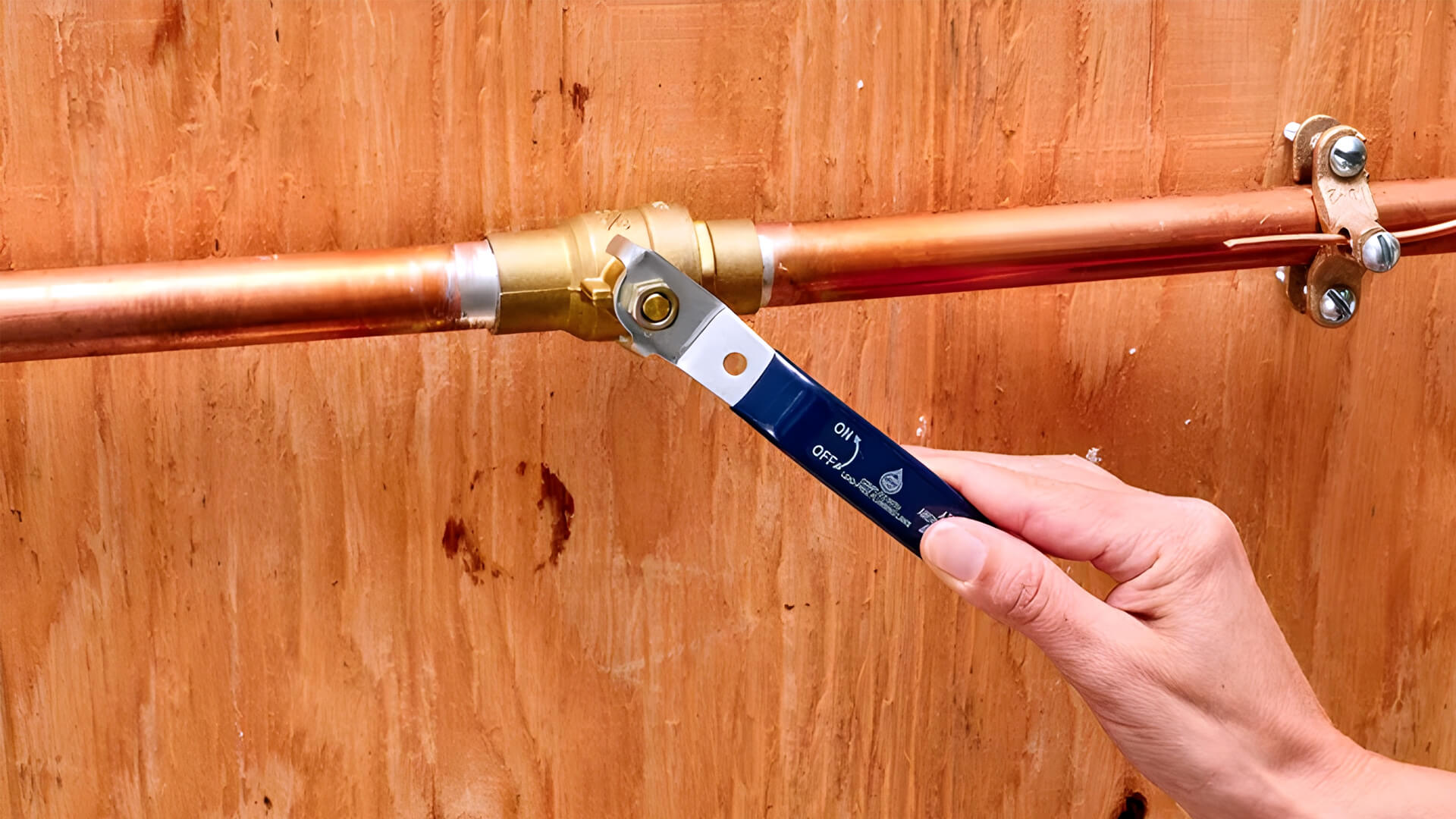
Regardless, a water hammer is caused by a sudden pressure surge or a change in the momentum of water flowing through a piping system. This sudden change in pressure or momentum creates strong shock waves propagating through the entire pipeline system. And the shock wave is powerful enough to damage or deform the water supply pipes.
But what exactly are the causes of water hammer? There are several reasons for the same. That’s why we prepared this article, where we have addressed some of the most common causes of water hammers.
Alright, let’s dive in!
What Causes Water Hammer?
There is a phenomenon known as water hammer, which occurs when liquids or steam pass through valves. An abrupt stop or abrupt change in direction of a moving fluid can produce water hammer, which is caused by pressure surges or high-pressure shockwaves.
Water that is flowing inside a pipeline has its momentum and pressure. And since water is incompressible, any sudden change in these attributes can send out strong shock waves, as we have already stated before. That said, several components within a water pipeline can cause such a change in pressure and momentum — take a look!
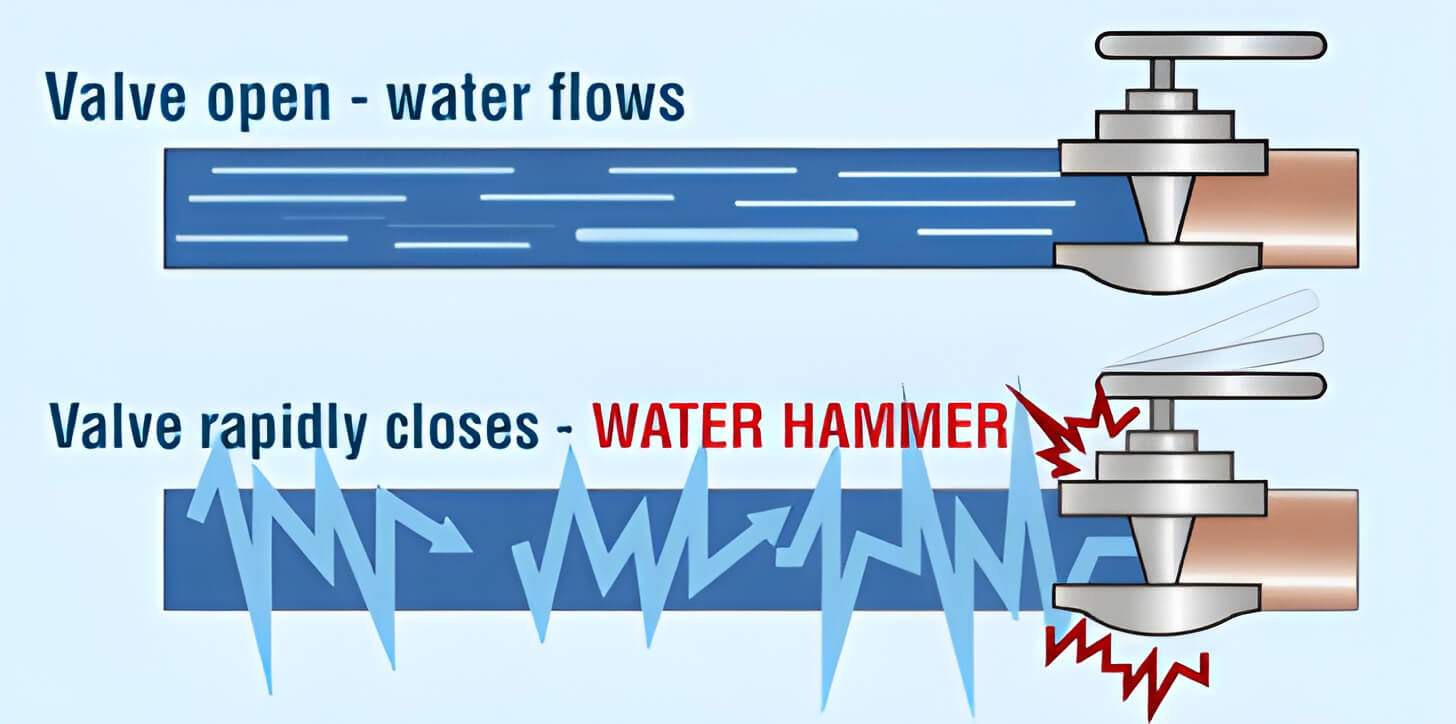
1. Loose Or Inadequately Secured Pipes
A loosely fitted pipe is one of the most common causes of a water hammer. These pipes are not fixed to a strong enough support at regular intervals and can produce strong vibrations and loud bangs from water shock waves. The bolts between two adjacent pipes may be fitted loosely in other cases. As a result, water may start leaking out of the joints.
2. Worn Stop Valves
A stop valve is used to control the water flow inside the pipe. And if it becomes too worn out, it can disrupt the flow across the entire system.
When the gland packing becomes loose, or the washer becomes too worn out, the stop valve becomes relatively ineffective in controlling the water flow. As a result, it can trigger a water hammer shock wave that travels through the entire system.
3. Trapped Gas And Air Pockets
Another common cause of water hammers is a pocket of trapped air within the pipelines. This occurs when there are no air relief valves in the system. Besides, gas accumulation inside the pipelines can give rise to gas pockets. These pockets can disrupt the water flow by altering the pressure inside the pipes, thereby causing a water hammer.
4. Fast-Acting Valves
Many water pipes use solenoid or shut-off valves that work quickly because they’re electric. Unlike traditional valves that close slowly, these can stop water flow almost immediately.
The sudden stoppage causes a sharp change in the momentum of water flowing in the pipe. This, in turn, sends out a shock wave, which leads to a water hammer.
5. Ripples Inside The Water Tank
Ripples may cause the ball or float valve installed inside the water supply tank to start bobbing. This causes the float valve to open and close, constantly changing the water pressure.
The fluctuating water pressure gives rise to several pressure waves, causing a loud hammering sound in the pipes.
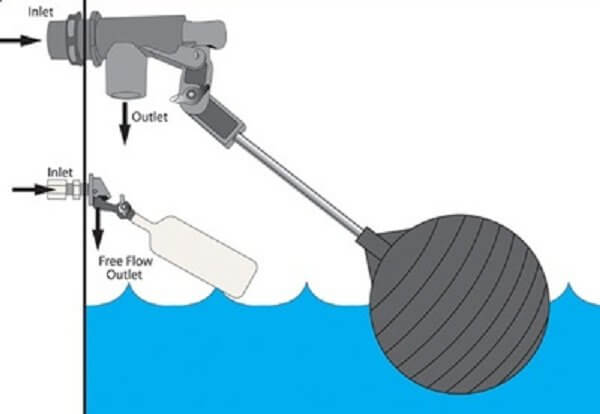
6. Installing New Appliances
When you install a new appliance, you may encounter a water hammer in your plumbing system. In most cases, this can be due to the fast-acting valves used in dishwashers, washing machines, and other appliances.
But it can also result from plumbing issues caused by improper installation of these appliances, so having your dishwasher installed professionally is always a good idea. This subsequently impacts the flow of water, leading to rattling and banging sounds in your pipeline.
Effects of Water Hammer
The loud banging of pipes is the most obvious sign of water hammer. But there are other issues water hammers can cause in your water system, which we’ve listed below.
1. Ruptures And Leaks In Water Tanks
The shock waves generated in a water hammer are strong enough to rupture water tanks and cause water to leak out from them. Therefore, this can be a significant cause for concern since a damaged water supply tank can affect the water supply in your household. Besides, it can cause a lot of water wastage, and replacing the water tank can be relatively costly.
2. Damaged Pipes
The shock waves generated might be too strong for your pipes to handle due to the high water pressure. This may cause major damage to the pipes, potentially causing them to burst and disrupting your water supply line.
3. Damage To Water Pumping Systems
A water hammer can cause considerable damage to the pumps that supply water throughout the household. When the water pressure increases, it strains the pumping mechanisms, which, in turn, can cause overheating or burnout. So, if you live in a multi-story apartment, you may not be able to pump water past the ground or first floor.
4. Damages In Water Flow Control Mechanisms
Water hammers can damage different components, such as valves, water pressure gauges and other instruments. A high-pressure shock wave can blow away valve components, such as the valve handle or a washer. The vibrations of these shock waves may also rattle a loose jumper from a stop valve, which can damage it irreversibly.
Moreover, a water hammer may blow up a water pressure gauge, making it difficult to monitor the pressure of the water. On top of that, replacing each of these components can be relatively expensive.
5. Loud noises
The noise of hammering water is loud; it’s enough to wake you up in the night and be audible from anywhere within your home. A noisy plumbing system is one of the most common plumbing problems Sunshine Coast homes face.
Preventing And Fixing Water Hammers
Understanding what causes water hammers and their effects means it’s essential to sort them out quickly. The fix will depend on the initial cause.
1. Secure Water Pipelines
One preventive measure is to tighten loose bolts at the pipe joints so the water does not leak out. In addition, you should tighten any flexible straps along the pipes to support them firmly.
Try attaching additional pipe straps frequently so the pipe doesn’t vibrate violently. Also, make sure not to use straps made from materials that can cause corrosion in the pipes. For instance, never use a steel strap for a copper pipe, and vice versa.
2. Install A Pressure Reducing Valve
You can install a pressure limiting valve to complement the stop and float valves. These can automatically relieve any extra pressure from inside the pipes. Furthermore, they can help maintain the flow of water after you install a new appliance.
3. Install Air Chambers
An air chamber, which can become clogged, is a small vertical pipe attached to your pipe system. Its primary function is to relieve any additional pressure and gas build-up to prevent the formation of ripples. Therefore, you can get rid of trapped air pockets by installing air chambers.
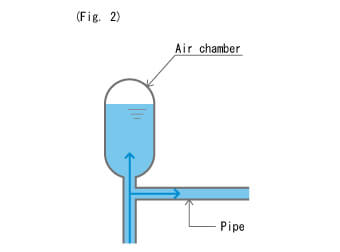
You can also prevent banging pipes with air chambers installed by ensuring a smooth and ripple-free flow.
4. Install A Water Pressure Regulator
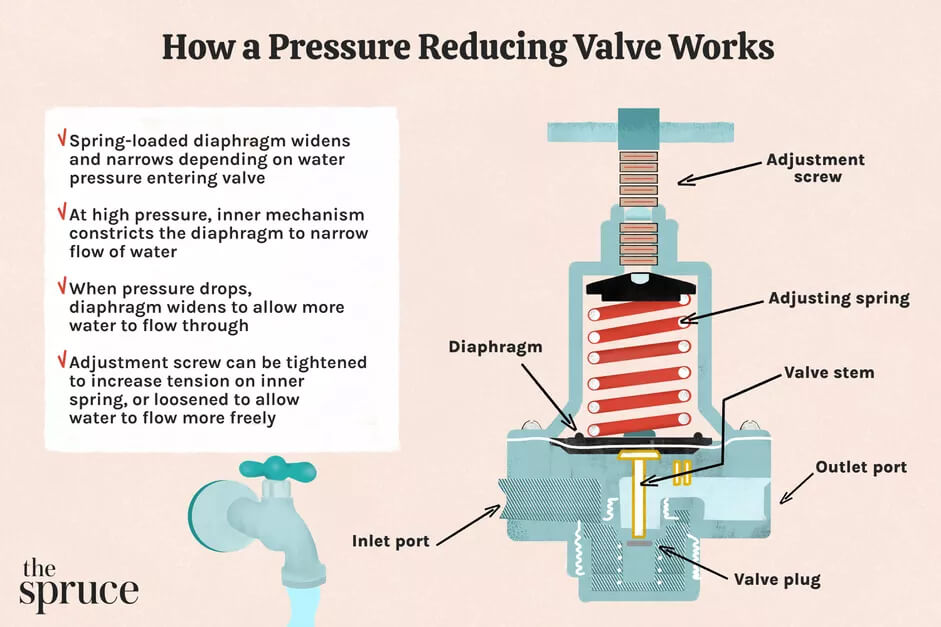
You can install water pressure regulators besides the main water valve. That will allow you to easily monitor and control the water flow and pressure.
5. Install Water Hammer Arrestors
A water hammer arrestor can effectively absorb the mechanical shock waves caused by the water. And using air bladders and springs can prevent damage to your pipes.
Water hammer arrestors are one of the last things a professional plumber will do; attempting to resolve the water hammer issue using another method is always recommended.
Stopping Water Hammer
And those were some of the most common causes of water hammers. So, using the information in this article, you can quickly identify and resolve them.
A water hammer is a relatively hazardous phenomenon that can cause irreversible damage to your plumbing system, but knowing how to fix a water hammer can prevent these issues. And repairing these damages can be a pretty costly affair.
As such, you need to resolve them as soon as possible. That is why we have also provided some possible solutions so that you can quickly fix water hammers and prevent them from occurring in the future.
Now that we have arrived at this concise article’s end, we hope you will put the information here to good use. But it’s always better to seek help from a licensed plumber if you lack the required plumbing experience.



